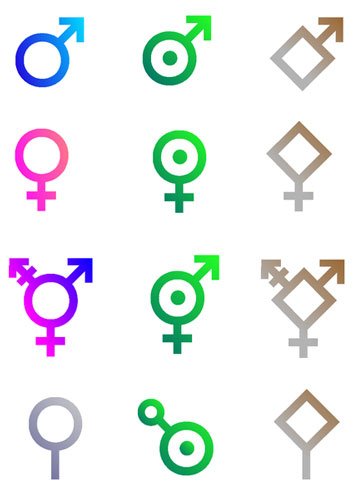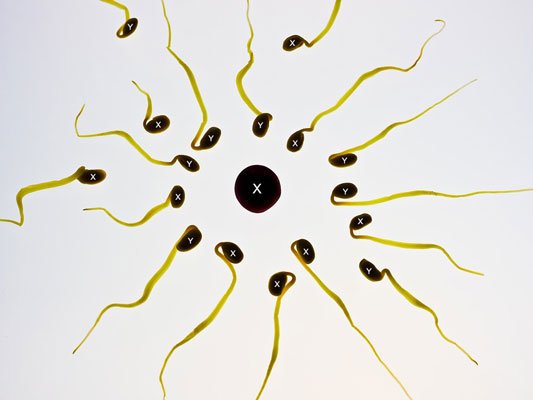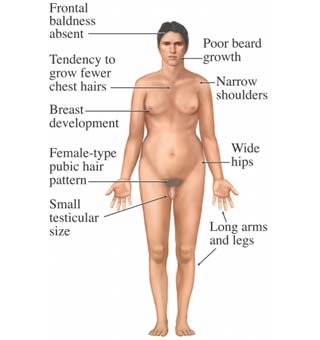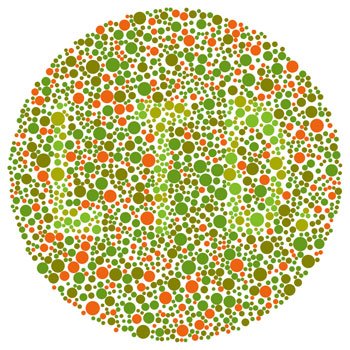
Various attempts by the Swiss to apply their Army Knife toolmaking skills to gender symbol creation. I think.
Source: Wikimedia Commons
Are men smarter than women?
Do women live longer than men?
Are men better at math?
Are women more nurturing than men?
Are men more criminal and more violent than women?
Are women better at cooperating?
Do men think about sex more than women?
Are women more monogamous than men?
And, come to think of it, why are there two sexes in the first place, instead of just one! Is it to torment us?
Welcome to a new series!
With my Introduction to Biology series drawing to a close (maybe it's already done, but I want to leave it open in case I'll want to publish something in the future), I was thinking about what to follow it with. I was thinking maybe math. I was thinking maybe physics.
Then it hit me: the field of sex differences! Not only is it interesting, it's contentious too.
Interesting, because who didn't love to debate the differences between boys and girls in high school? Or even at uni? Or, why not, the nursery home? And what other subjects can you mention that drew all to join the discussion as eagerly and as cross-sexually (i.e. involving both sexes) as this one? There's just something about sex differences that is inherently interesting to every one of us, and it's something everyone would probably like to read about.
Contentious, because the current political/sensitive climate would prefer to think that sex differences are 100% socially constructed, which even a cursory perusal of the scientific literature shows is clearly not the case (at least according to the people — both men and women — who work in the field of sex differences).
After mentioning my idea in a comment, I was happily joined (adventitiously or not) by @Abigail-Dantes and @Zest in tackling this topic. Abigail's post might be a one-off, but Zest is doing a series on it, and since he's a real archeologist I'll sure be gaining insights from him. I enjoy cross-linking to posts of others here on Steemit, since it generates a greater sense of community, but I don't often get the opportunity to do so. Hopefully now, I will.
I plan to tackle sex differences from all available perspectives: cognitive, emotional, biological, anthropological, feminist... A Herculean task, to be sure, but if I walk it slowly enough I might not trip.
And, for a large part, I'll be learning as I post.
So, if you, like me, are getting bored of this overlong introduction, come and join me in this first episode of my new series on Sex Differences!
My qualifications

It's like a 6th sense I have.
Source: FreeGreatPicture
But, you may ask, what makes me such an expert on this topic? Why should you trust me?
Well, I don't know about you, but I consider myself something of an expert when it comes to guessing people's sex. And by sex I mean genitals. True, my evidence is merely anecdotal, as in most cases I haven't been able to verify my prediction of the sex of a human by examining their genitals.
It's not for lack of trying, mind you. But people don't just drop their pants upon my asking them nearly as often as I'd like. I guess I don't cut as authoritative a figure as the investigator of Milgram's experiment.
But my predictions are verified indirectly by the pronouns people use to refer to these people.
But, you're thinking, have they examined these people's genitals? And, secondly, do pronouns refer to sex or gender?
Both are valid points. Plus, I have by no means been infallible in my assessments. I sometimes get it wrong. And I'm not alone: for example, many report difficulties assigning a sex and/or gender to Justin Bieber, some going as far as to ask the question on Quora. Even Marilyn Manson, who has himself caused some confusion regarding his gender with his Mechanical Animals album cover, refers to Bieber as a girl. (Then again, he refers to him as a squirrel, so he might be talking metaphorically.) There is even a Vanity Fair article with the title "Justin Bieber Is a Changed Man". Admittedly, I haven't read past the title, but I can only surmise what "changed" means here.
So given all this perplexity, how do we determine the matter of one's sex scientifically?
Sex for Money
For John Money, there's not one, but at least 8 ways to determine sex (some of which he invented). He would know, considering he was "one of the world's experts on children born with ambiguous genitalia."[1, p. 13] What a profession to have! If someone random gets your child's sex wrong, it's merely offensive. But if this guy does it, considering his credentials, it could give you a heart attack!
My guess is you'd want those 8 Money criteria to all match. But that doesn't always happen. This post will be devoted to the most basic of these 8 ways: sex chromosomes.
Bottom up

Source: Terry Robinson
If you were looking for an excuse to down a beer for the #sevendaybeerchallenge, I guess I just gave it to you. But what the title really refers to is bottom-up (or reductionist) approaches to studying sex differences: reducing the organism to one or several of its components. Starting from the chromosomes is an example of a reductionist bottom-up approach to studying sex; starting from the social environment and examining how it may influence or even create the meaning of the component parts, is an example of a top-down approach.
Anyone who's been reading my biology series, knows I prefer to start from the bottom.
XX vs XY
Humans are born with 46 chromosomes coupled in 23 pairs (ah, so romantic!) The X and Y chromosomes determine the child's sex, and are therefore not inaptly called the sex chromosomes.
Females have two X chromosomes that they can pass to their child. Males have one X and one Y. Unfortunately, babies can't get all 4. They can only get 2. And since babies love mom and dad equally, they want to get an equal share from mom and dad. So they get one X from mom (since Xs are all she has to offer) and either an X or a Y from dad. If they get an X from dad, then they have two Xs, which makes them in effect a female (see first sentence of this paragraph). If they get a Y from dad, it means they are an XY, and have become a male (see second sentence of this paragraph).
Your supreme powers of deduction might've led you to the conclusion that the above means that's it's the male that decides the child's sex. And you're not wrong.
Who determines the child's sex? Mom or dad?

Highly artistically licensed rendition of eggs and sperm. Not to scale. Eggs are much bigger than sperm. About 10,000 times bigger.
Source: FreeGreatPicture, modified
Not all women know who they're going to marry when they're only 3 years old. But Catherine of Aragon did. How long would they remain married, though, was anyone's guess. It turned out to be 5 months, since her husband Arthur Prince of Wales died 5 months after marrying her. As custom had it, she married Arthur's younger brother, King Henry VIII. But Henry was dissatisfied with Catherine because she failed to produce any living sons. So he divorced her and married another.
Historical men and movie men are sometimes portrayed as blaming women for their inability to produce male offspring. But whose fault is it really?
As we saw above, since the unfertilized human female egg can only carry an X chromosome, whether the fertilized egg will be an XX or an XY depends on whether the sperm that fertilized it carried an X or a Y chromosome. In that sense, it's the male that decides the sex.
However, ought it not to be a random 50-50 anyway? Shouldn't half the sperm carry an X and half a Y? Are there indeed families where, for some reason, there is a proclivity toward one of the sexes?
A study involving 927 family trees containing information on 556,387 people from North America and Europe going back to year 1600, revealed that the tendency to produce more males or females is inherited. Gellatly, the lead author of the study, said:
The family tree study showed that whether you’re likely to have a boy or a girl is inherited. We now know that men are more likely to have sons if they have more brothers but are more likely to have daughters if they have more sisters. However, in women, you just can’t predict it.[3]
To explain this, the researchers hypothesized the existence of gene alleles (=versions of a gene) that control this bias in favor of birthing males or females. They proposed 3 scenarios:
mm alleles = sperm with male bias
ff alleles = sperm with female bias
mf alleles = sperm with no bias
If true, this would explain the phenomenon of more men being born after wars. Since men who produce more sons (mm) are more likely to have more sons return from the war to father more kids and propagate their mm genes, whereas men who produce less sons (ff or mf) are more likely to have their few or nonexistent sons die in the war (since there's fewer of them), it therefore follows that there is a spike in male births after wars.
Note that this is a hypothesis, distinct from the finding (the finding being that the propensity to father males or females is inherited).

Source: National Human Genome Research Institute
There are also other factors that may influence which sperm gets to the egg first. Since the Y chromosome is smaller than the X chromosome, then, all other things being equal, it follows by the sheer power of logic that Y sperm will be carrying a lighter load than X sperm, and this might mean it will be speedier (see [4]). This leads to slightly more boys being born relative to girls on average. (Don't you love it when you can draw scientific conclusions like that a priori, using only logic?)

After the research, I suggest a Y shape.
Source: Wikimedia Commons
Other studies suggest that lifestyle and diet may play a role in the child's sex, like this British study that found that eating more high-energy breakfast foods like cereal is associated with the birthing of males.
However, before you stuff yourself full of Kellogg's to make your Henry happy, bear in mind that the study only found a correlation, not cause-and-effect (meaning that the real cause, if any, could be something else those cereal-mothers did), and that the effect was small anyway, not what's considered a significant finding.
So far, the main thing that seems to determine sex in babies is the father's sperm. Interestingly, this is not always the case for other animals, where things like mere temperature can affect the offsprings' sex.
Let's get practical

Klinefelter syndrome.
Source: http://smithperiod6.wikispaces.com/Klinefelter's+Syndrome
You might be thinking that I am pointlessly murking the waters, when in fact the issue is simple: look at the damn genitals!
We will be examining them in future posts, but for the time being let's just say that John Money is not happy at your insinuation that his job is easy.
"Well...then...look at the damn chromosomes!"
Hold your horses, Cartwright.
I may be partly to blame, cos I gave a rather simplified (and black and white, or male and female) picture of sex chromosomes earlier, when I implied that all humans are either 46XX (your typical female with 46 chromosomes) or 46XY (your typical male). The real true reality of the thing is, there's also (rarely) a 45X. And, equivalently, a 45Y. These are called sex monosomies. And if you know your language, you can be damn sure that where there's a 'mono', there's also a 'poly' somewhere near (possibly dem rowdy neighbors who recently moved in and have been having too many suspicious-sounding parties). Yes, there's also sex polysomies, which means three or more sex chromosomes: 47XXX, 47XYY, 47XXY ... take your pick. It's a mix and match.
And did I mention that 46XXs are not necessarily female and 46XYs are not necessarily male? I didn't, did I? Well let me do so now:
In addition, some males are born 46XX due to the translocation of a tiny section of the sex determining region of the Y chromosome. Similarly some females are also born 46XY due to mutations in the Y chromosome. Clearly, there are not only females who are XX and males who are XY, but rather, there is a range of chromosome complements, hormone balances, and phenotypic variations that determine sex.[6]
Cognitive overload? You may go have a snack and a walk.
After the snack, you come back and say "I think you pulled a fast one on me. If the sex chromosomes are XX but the person is a male, how exactly did we determine he's a male?"
Well, it could be that the XX individual scores a perfect 7 out of 7 for male on the other 7 out of 8 of John Money's criteria. Maybe. Or maybe he just has a huge penis.
Or take the reverse case, individuals with AIS (androgen insensitivity syndrome). These are XYs (chromosomally male) individuals who have the external characteristics of females. Their tissues don't respond to male hormones (androgens) but they respond to female hormones, which leads to the phenotype of a female. In a study of 14 of these individuals, they "expressed satisfaction with their psychosexual development and sexual function. All of the women who participated in the study were satisfied at having been raised as females, and none of the participants desired gender reassignment."[6]
This is where it starts to get rather practical: Should these individuals have the legal right to marry a male in a country or state in which same-sex marriage is illegal? Should they have the legal right to adopt children? Should they be allowed to compete against other women in sports?
Sex in Sports
Drugs are not the only way certain athletes may seek to gain an unfair competitive advantage in sports.
Another form of cheating is unique to women's athletics. The possibility exists that men, whose physical characteristics plausibly could confer advantage, might masquerade as women and be unfair competitors in women's sports.[7]
There have been several recorded cases of female champions whose status as females was later questioned.[8] A 1932 Olympic Games female champion was autopsied in 1980 to reveal testes; a European women's high-jump champion had both female and male organs; a female record-breaking runner said to have been a male masquerading as a female was later diagnosed as "uncertain"[7]. Several people competing as females later had sex-change operations, and some even became fathers.

Mary Edith Louise Weston. Later Mark Weston.
Source: Wikipedia Commons
Due to a severe lack of more serious problems in the world, like wars and political and economic and social inequality, all of which have been solved, the public understandably picked males-masquerading-as-females-in-sports as a topic worthy of getting very upset about, which led to athletic organizations trying to establish rules of eligibility for women athletes, beginning with the Rome Olympic Games of 1960. If you've been reading this post closely so far, you'll know how that went. Things are to this day controversial and unclear. Historically, the tests run the gamut from physical examinations, to chromosome testing, to testosterone testing, etc.[8]
And all were found lacking. A 1993 review article (an article that surveys and summarizes previously published studies) concluded that "Probably there will never be a laboratory test that will adequately assess the sex of all individuals."[7]
"1993? Isn't that old?"
You say old. I say prescient. (Or I wouldn't be using it.) Here is a 2009 article concerning Caster Semenya, a world-champion runner from South Africa whose sex has been questioned. The article clearly sides with the above review. (I highly recommend you read it: it makes the same general points as this post, and even future posts, in much less space and much more clearly and memorably.)
Fear not: all that doesn't mean there's no way for us to know if you're a male or a female. It just means that whatever ways we use to tell whether you are a male or a female, cannot necessarily be applied to all individuals.
My view of the matter
Take the (slightly more current) example of Hannah Mouncey, formerly Callum Mouncey who played 22 games with the Australian men's national handball team, before switching, body and game, to women's. Although, after her hormonal therapy, her testosterone levels are within and in fact far below the official limit, doesn't she still have an unfair advantage over other women?
My personal view is that this whole thing is a conspiracy invented by chauvinist males to get back at feminists using their own game. I'm predicting a future where parliaments will be 50% male and 50% female — as per the feminist ideal — but if you look underneath their pants and skirts you will find 100% penises. I call it the Trojan Gender Horse conspiracy.
My serious personal view is: sports are stupid.
Plus, everyone's doping anyway.
Sex Ltd.

This time, only colorblind people can see the image. Ha! But if you concentrate, it's kinda visible.
Source: Made with https://franciscouzo.github.io/
In case an allele goes rogue, XXs have a backup copy. XYs, since they lack the other X, are more prone to certain medical conditions like color-blindness, hemophilia, and other X-linked recessive inheritance conditions.
Only a very small amount of sex differences, such as these, are directly attributable to the sex chromosomes, and they are called sex-linked.[1, p. 13]
The great majority of sex differences are sex-limited, not sex-linked. This means the genes are there in both sexes but are not turned on. They exist as a binary either/or (either completely activated or completely inactivated), or as a spectrum (these are sometimes categorized separately as sex-influenced genes), where they are activated more, or less, in one sex as opposed to the other on average, but this doesn't mean a particular member of a sex necessarily exhibits it more strongly than a particular member of the other sex.
Curtain close

Source: Pixabay
Making issues complex by thinking about them is not the sole province of philosophers. In fact, I'd say the same happens in all areas of human inquiry, and it's just uneducated people who think philosophers — the de facto experts at simplification — the very people who invented Occam's razor — do it more than others. If you start asking about sex, the issue quickly becomes murky. Here's a quote that says the same thing I just said but which still solidifies my point:
The more psychologists think about the question "How do we know someone's sex?," the more complicated it becomes.[1, p. 12]
There. QED.
See you in the next overcomplicated post, where I will continue to tear all your sex and gender assumptions asunder!
REFERENCES
1. Mealey, L. (2000). Sex differences: Developmental and evolutionary strategies. Academic Press.
2. Wikipedia contributors, "John Money," Wikipedia, The Free Encyclopedia, https://en.wikipedia.org/w/index.php?title=John_Money&oldid=829379751 (accessed March 9, 2018).
3. Newcastle University. "Boy Or Girl? It's In The Father's Genes." ScienceDaily. www.sciencedaily.com/releases/2008/12/081211121835.htm (accessed March 8, 2018).
4. Amy Johnson. Chromosomes. Ask a Geneticist. Stanford at The Tech. http://genetics.thetech.org/ask-a-geneticist/which-parent-decides-whether-baby-will-be-boy-or-girl
5. Fiona Mathews, Paul J Johnson, Andrew Neil. You are what your mother eats: evidence for maternal preconception diet influencing foetal sex in humans. Published 22 July 2008.DOI: 10.1098/rspb.2008.0105 http://rspb.royalsocietypublishing.org/content/275/1643/1661.article-info
6. World Health Organization. 2018. Gender and Genetics. Genetic Components of Sex and Gender. http://www.who.int/genomics/gender/en/index1.html
7. Simpson JL, Ljungqvist A, de la Chapelle A, Ferguson-Smith MA, Genel M, Carlson AS, Ehrhardt AA, Ferris E. Gender verification in competitive sports. Sports Med. 1993 Nov;16(5):305-15. https://www.ncbi.nlm.nih.gov/pubmed/8272686
8. Wikipedia contributors, "Sex verification in sports," Wikipedia, The Free Encyclopedia, https://en.wikipedia.org/w/index.php?title=Sex_verification_in_sports&oldid=825449460 (accessed March 8, 2018).
9. Dreger, Alice (August 21, 2009). "Where's the Rulebook for Sex Verification?". New York Times. http://www.nytimes.com/2009/08/22/sports/22runner.html
10. Wikipedia contributors, "Mark Weston (athlete)," Wikipedia, The Free Encyclopedia, https://en.wikipedia.org/w/index.php?title=Mark_Weston_(athlete)&oldid=828451090 (accessed March 8, 2018).
11. Wikipedia contributors, "Hannah Mouncey," Wikipedia, The Free Encyclopedia, https://en.wikipedia.org/w/index.php?title=Hannah_Mouncey&oldid=828237949 (accessed March 8, 2018).
12. Wikipedia contributors, "X-linked recessive inheritance," Wikipedia, The Free Encyclopedia, https://en.wikipedia.org/w/index.php?title=X-linked_recessive_inheritance&oldid=826831111 (accessed March 9, 2018).
13. Wikipedia contributors, "Sex-limited genes," Wikipedia, The Free Encyclopedia, https://en.wikipedia.org/w/index.php?title=Sex-limited_genes&oldid=803541908 (accessed March 9, 2018).
steemSTEM is the go-to place for science on Steemit. Check it out at @steemstem or browse the #steemSTEM tag or chat live on discord
